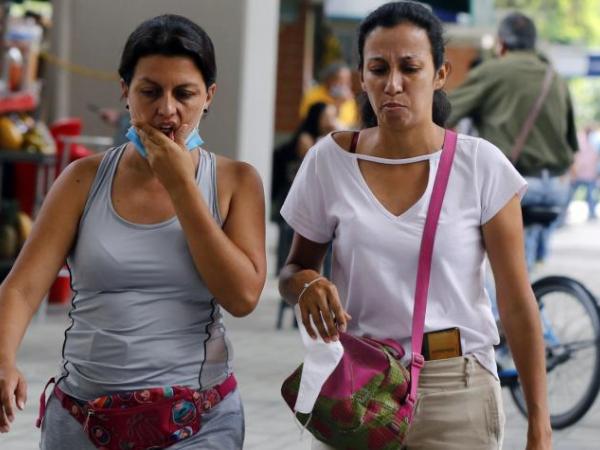From this Wednesday, in the municipalities that exceed the 70% in complete vaccination schedules, its inhabitants can be without face masks in public space, This was determined by the President of the Republic Iván Duque Márquez and confirmed by the Ministry of Health and Social Protection.
(The cities that will be able to lift the restriction on the use of face masks).
Faced with this new decision, the president stated: “This will help us all go out to meet that goal as a country. We are close to reaching this indicator, we are at 65%”.
According to the vaccination report of the Ministry of Health, currently 40.2% of the 1,121 municipalitieswhich are specifically 451, can take advantage of this new measure ordered by the National Government.
However, more than half, 59.7% of these territories would still not be able to say goodbye to outdoor respiratory protection.
The records indicate that 40.3% of the cities have less than 50% of their inhabitants with complete schemes, and 19.4% have coverage between 60% and 69%. Thus, the main cities enabled to remove this restriction are: Bogotawith 72.4% of the population with two doses or with a single dose; Medellin, with 74% of complete schemes; Barranquilla, with a percentage of immunized people of 84.8%; Cartagena (71.4%), and Bucaramanga with 77% of its population vaccinated.
“It is a correct measure (…) Now what comes is learning to live with this disease,” said the mayor of Barranquilla, Jaime Pumarejo.
(They will lift the use of face masks in regions with 70% of the population vaccinated).
Other cities in which their inhabitants will be able, after two years, to go out on the streets without a mask are: Armenia (71.8% in schemes), Pereira (86.8%), Manizales, (73.1%), Popayan (81.4%), San Andres (73.4%).
However, Cali and Santa Marta, that are part of the most important capitals of the country, they cannot be added to the end of the mask restrictionsince they register complete vaccination rates of less than 70%, specifically 64.3% and 64.1%.
On the other hand, the Minister of Health, Fernando Ruiz, made the caveat about public transport, as a scenario that still requires the use of a mask. “The public transport system does not operate as a public space. In public transport we must continue to maintain the mask, because there is a closeness and crowding there and, in general, there are no ventilation conditions “added the head of the Health portfolio.
From the scientific community, Andrea Ramirez, Public Health Physician and Epidemiologist at the Universidad de los Andes, affirms that this decision must be taken with caution so that it does not generate future spikes in contagion.
(ISA and Unal applied 44,704 doses in Antioquia).
It clarifies that “there are population groups with vaccination coverage close to 50% or less, such as pregnant women, those under 29 years of age and children, and that these groups are those that are just beginning their face-to-face activities, which can generate infections” .
In addition, he suggested that “policies on the use of face masks be linked to vaccination rates in groups that are vulnerable, with booster doses. This decision should be made with concern, because this may result in no standards being met.”
BRIEFCASE


















